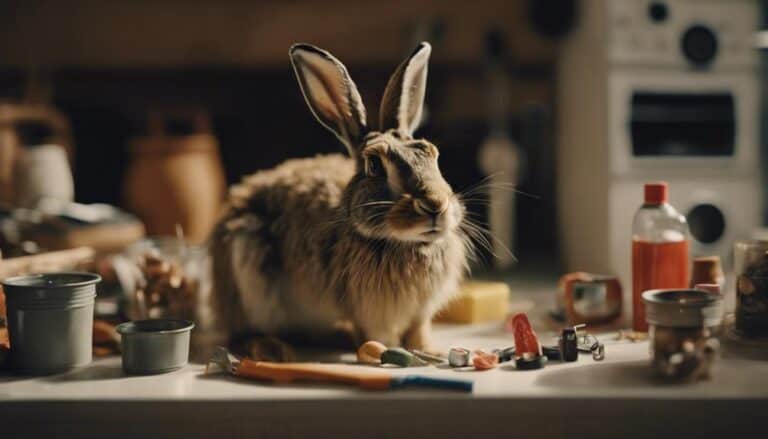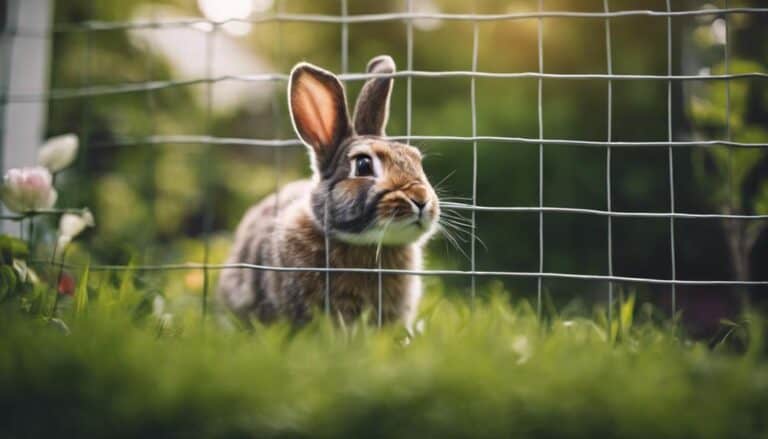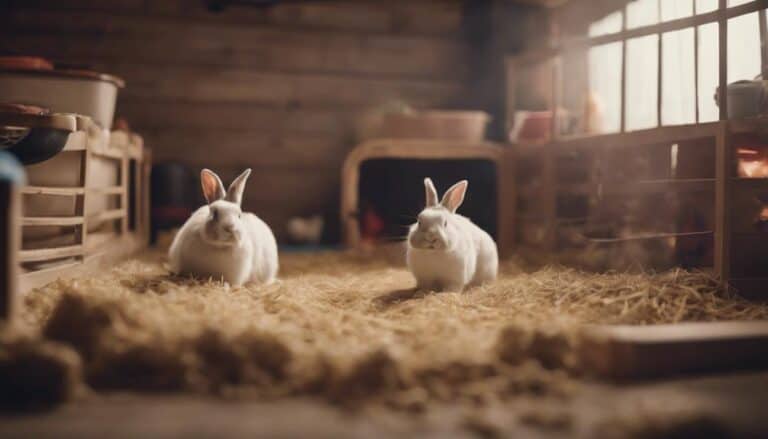So, your kid is asking for a pet rabbit for Easter? That's a pretty common request, but before you decide, it's essential to think about the realities of having a pet rabbit.
First, there's the daily care routine. Rabbits need regular feeding, cleaning, and exercise. That means you'll need to set aside time each day to take care of the bunny. And it's not just about throwing some food in a bowl and calling it a day – rabbits have specific dietary needs, and their cages need regular cleaning to keep them healthy.
Then there's the long-term commitment. Rabbits can live for 8-12 years, so you're looking at a decade or more of caring for this pet. That's a big responsibility, especially if your kid is young and may lose interest after a few months.
Before you make a decision, ask yourself if you're ready for the responsibilities that come with having a pet rabbit. Is your kid really committed to caring for a bunny, or is this just a fleeting Easter wish? It's essential to consider these factors before bringing home a furry friend this Easter.
Contents
Key Takeaways
So your kid is begging for a pet rabbit for Easter, huh? That's understandable – who can resist those adorable little faces? But before you give in, take a step back and consider what it really means to own a rabbit.
First off, rabbits need a lot of time and attention from you. They're not a low-maintenance pet that you can just stick in a cage and forget about. They need regular exercise, social interaction, and mental stimulation to stay happy and healthy.
Speaking of space, don't even think about getting a rabbit if you're planning to stick them in a tiny hutch. Rabbits need room to roam and play, so you'll need a decent-sized enclosure or a rabbit-proofed area of your home where they can run free.
Owning a rabbit is also a long-term commitment – we're talking 10 years or more. That's a big responsibility, especially for kids. Make sure you're prepared to care for a rabbit for its entire lifespan.
Rabbits also have specific dietary needs. They need a high-fiber, low-sugar diet that's rich in veggies and hay. You can't just feed them whatever you've got lying around the kitchen.
Finally, rabbits might not be the best pet for young kids. They're delicate creatures that need gentle handling, so they're not a good fit for little ones who might not understand how to handle them carefully.
Considerations Before Getting a Rabbit
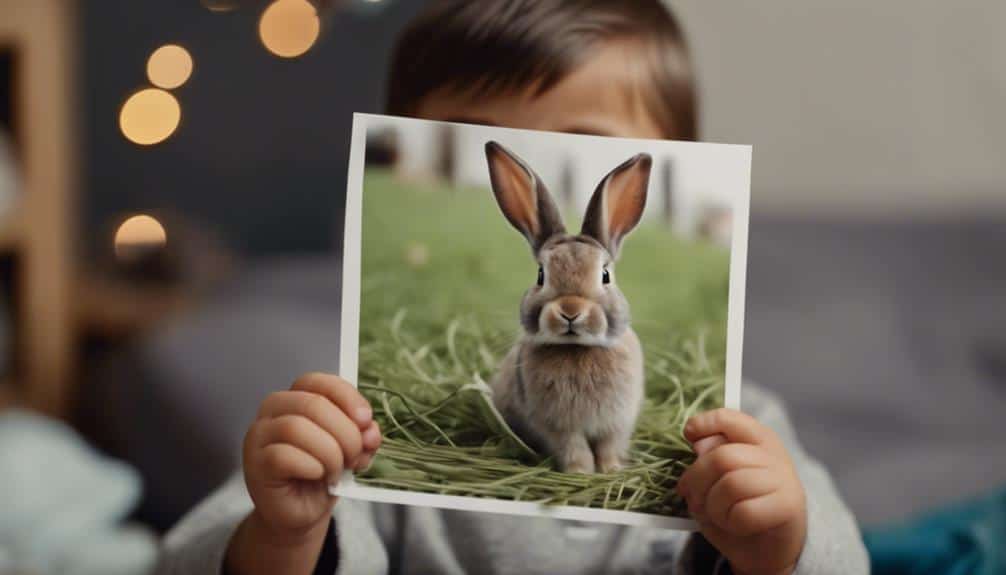
So you're thinking of getting a rabbit?
Rabbits are high maintenance animals that need more than just a hutch and occasional feeding. They demand a significant amount of time, attention, and resources to thrive in a home environment.
For instance, they need ample space to roam and play, which means a small cage or backyard hutch won't cut it. You'll need to provide them with a spacious and enriching environment to prevent boredom and health issues.
Another important thing to consider is that rabbits must be spayed or neutered. This is crucial for their health and can help minimize destructive behaviors.
However, this process can be costly and time-consuming, adding to the responsibilities of rabbit ownership.
It's also important to remember that owning a rabbit is a long-term commitment.
With some rabbits living 10 years or more, you'll need to be prepared to make a sustained investment of time, money, and care.
Rabbit Care Essentials
Taking care of a pet rabbit is a big responsibility. You need to get a few things right, like their housing and diet.
First, let's talk about where they live. Rabbits need space to move around, so you'll need to provide a spacious area that's safe from harm.
You'll also need to rabbit-proof it, which means removing anything they could chew on or get into trouble with.
When it comes to food, rabbits have specific needs. They need a balanced diet that includes plenty of hay and fresh vegetables.
This is crucial for their health, so make sure you're providing the right foods in the right amounts.
Rabbit Housing Needs
When it comes to setting up a home for your pet rabbit, providing enough living space is crucial for their physical and mental well-being.
First and foremost, you need to ensure your rabbit has plenty of room to move around freely. A minimum of 2x2x4 feet of floor space and 2x4x4 feet of vertical space is necessary for their comfort and well-being. This will give them the space they need to stretch out, exercise, and feel relaxed in their environment.
You need to think about rabbit-proofing your home. Rabbits are naturally curious creatures and love to chew on almost everything. So, it's essential to protect your belongings by keeping baseboards, carpeting, and electrical cords out of reach.
You need to provide your rabbit with plenty of opportunities for playtime and exploration. Oxbow recommends setting aside at least one hour a day for supervised playtime outside of their habitats. This will allow your rabbit to exercise, explore, and maintain their physical and mental health.
Nutritional Requirements
When it comes to keeping your pet rabbit happy and healthy, understanding what they need to eat is a big part of the equation.
Rabbits are herbivores, which means they need a diet that's high in fiber. The ideal mix is 80-90% hay, 5-10% veggies, and 5% pellets. Fresh water should always be available, and their food dishes need to be cleaned daily to prevent health issues.
You'll also want to avoid giving your rabbit foods that are high in sugar, fat, or salt, as these can cause problems. That means no treats like chocolate or nuts.
As your rabbit gets older, their needs will change. For example, young rabbits need more calcium to support their growth, while older rabbits need fewer calories.
Long-Term Commitment Required
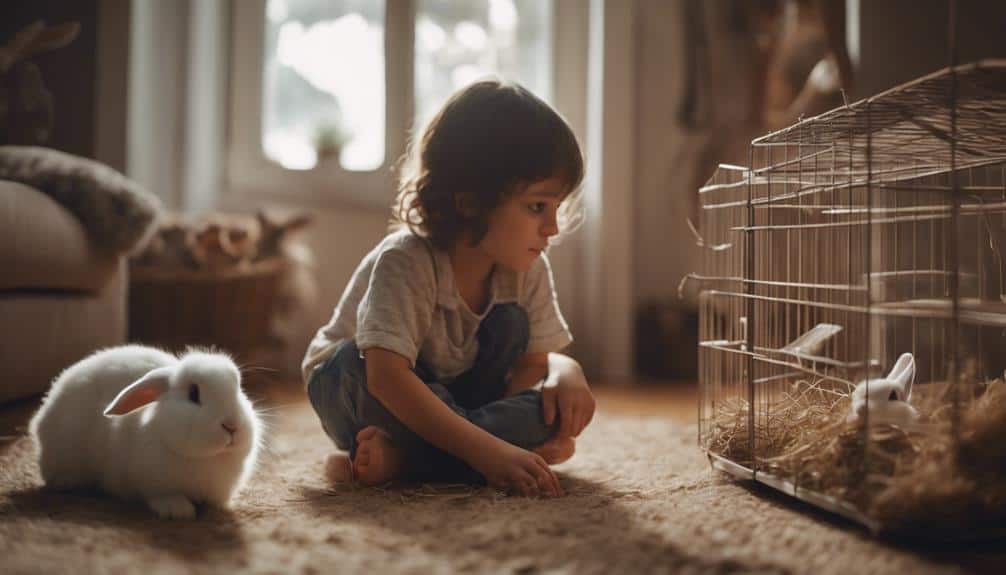
When you decide to bring a pet rabbit into your home, you're making a long-term commitment to caring for them. This means you'll need to be dedicated, patient, and willing to put their well-being first for their entire life.
Rabbits can live for 10 years or more if you take good care of them. That's a decade or longer of providing for their needs, so make sure you're ready for that kind of commitment.
It's also important to think about responsibility. If you have kids, they might lose interest in the rabbit over time, leaving you as the primary caregiver. You'll need to be prepared to take on that responsibility for the rabbit's entire life.
Owning a rabbit also requires some sacrifices. You might need to adjust your lifestyle, budget, and free time to make sure your rabbit is happy and healthy. It's a big commitment, but it's worth it if you're willing to put in the effort.
Potential Challenges of Rabbit Ownership
Owning a rabbit can be a big responsibility, and there are some potential challenges you should think about before bringing one home. For starters, rabbits are social animals, so they need regular attention and interaction to be happy and healthy. This can be tough for busy families or individuals who don't have a lot of time to care for a pet.
Another thing to consider is that rabbits can live for 10 years or more, which is a long time. This means that if you have kids, they may lose interest in caring for the rabbit over time. You'll need to make sure you have a plan in place to care for the rabbit for its entire life.
Rabbits also need a lot of space to move around and exercise, so you'll need to make sure you have a big enough area for them to roam. This can be a challenge for people who live in small apartments or homes.
Rabbits also have special dietary needs that are different from dogs and cats. You'll need to invest in high-quality food and hay to keep them healthy. And, like all pets, rabbits can get sick, especially with dental problems and respiratory infections. These can be expensive to treat, so you'll need to be prepared for potential vet bills.
Before you decide to get a rabbit, make sure you understand these challenges and are prepared to meet their needs.
Alternatives to Getting a Rabbit
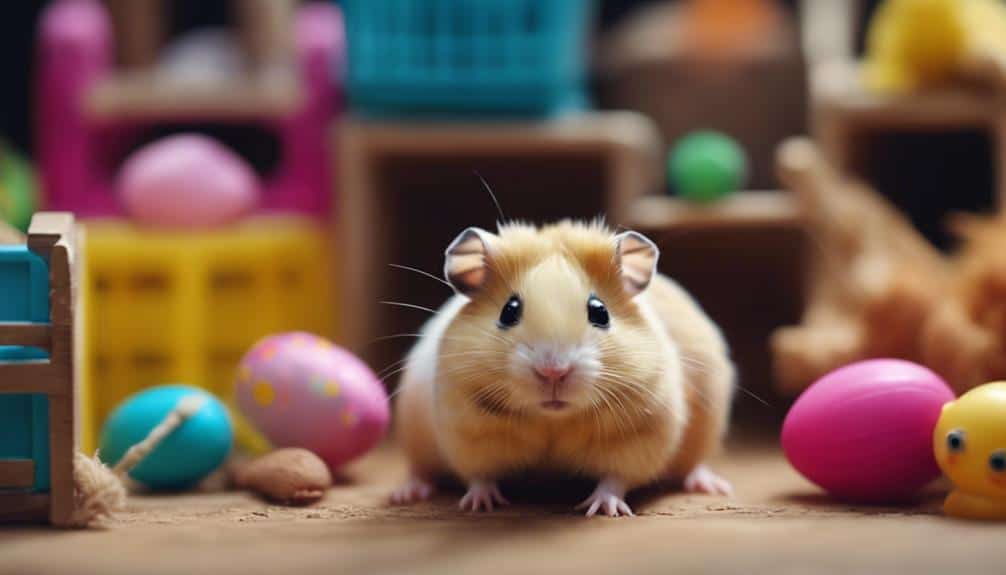
If you're not sold on getting a rabbit, there are other pet options worth considering. These alternatives might be a better fit for you or your family, depending on your lifestyle and preferences.
Guinea pigs, for instance, make a great alternative to rabbits as pets for kids. They're easier to care for, more social, and love human interaction.
Hamsters are another low-maintenance option that require a smaller space and are relatively quiet, making them suitable for apartment living.
If you're looking for something even lower maintenance, fish can be a great first pet for kids. They teach responsibility and require minimal space and care. Plus, there are many varieties to choose from, offering a unique pet experience.
Each of these alternatives has its own set of characteristics that may better suit your family's lifestyle and preferences compared to rabbits.
When considering a pet, it's essential to choose one that fits well with your living situation and the level of care you can provide.
Making an Informed Decision
So you're thinking of bringing a rabbit into your home? That's great, but before you do, it's really important to understand the basics of rabbit care and what it means to have a family pet.
Rabbits need a lot of care and commitment, so you need to make sure you can provide that.
Research is key here. Look into their needs, how long they live, and their behavior. This will help you figure out if you can give them what they need.
For example, you should learn about what they eat and what kind of personality they have.
This will help you make an informed decision that's best for both you and the rabbit.
Rabbit Care Basics
So you're thinking of bringing a pet rabbit into your home? That's a big decision, and it's essential to understand what's involved in providing a safe and healthy environment for these unique creatures.
Rabbits are a long-term commitment. They can live for 10 years or more, so you need to be sure your family is ready to make a commitment that's going to last a while. This is especially important to consider if you have kids, since their interests can change quickly.
Rabbits also need plenty of space to move around and exercise. A cage just isn't enough – they need room to roam freely in your home. So, you'll need to have a good amount of space available for your rabbit to run around and play.
Rabbits are sensitive to handling. As prey animals, they don't like being picked up or cuddled, and they may kick or struggle when handled. This makes them less suitable for young children who might want to carry them around frequently.
Family Pet Considerations
So, you're thinking of getting a pet rabbit? That's great! But before you bring one home, it's essential to consider a few things to make sure it's the right fit for your family.
First, rabbits are a long-term commitment – we're talking 10 years or more. So, you need to think about whether you can provide a stable home for that long. Rabbits also need a lot of space to live happily. A cage or backyard hutch just won't cut it. You'll need a rabbit-proofed room or designated area to prevent destructive behavior and ensure their well-being.
Rabbits also have specific dietary needs. They require high-quality pellets, hay, and fresh vegetables to stay healthy. And don't forget about regular veterinary check-ups! Rabbits are prone to health issues like dental problems and respiratory infections, so it's crucial to catch any problems early on.
Another thing to consider is that rabbits mightn't be the best fit for young children. They can be skittish and delicate, so they need gentle handling and care. Older children or adults might be a better fit, as they can provide the necessary care and attention.
Conclusion
So, you’re thinking of getting a pet rabbit for Easter because your son has been asking for one. That’s understandable – who can resist those cute, fluffy faces? However, before you make a decision, it’s important to consider the differences between a boy bunny vs girl bunny. Male rabbits tend to be more playful and affectionate, while females can be a bit more independent and territorial. Whichever you choose, make sure to do your research on their care needs and find a good vet who specializes in rabbits.
But before you bring a bunny home, take a step back and think about the commitment involved.
Rabbits need a lot of care and attention. They're not just cute toys that can be left alone; they require regular feeding, cleaning, and exercise.
You'll need to make sure they've a safe and comfortable place to live, and that you can provide the right food and vet care.
It's also important to consider the long-term responsibilities involved. Rabbits can live for up to 10 years, so this is a big decision that will affect your family for a long time.
If you're not sure you're ready for that kind of commitment, you might want to explore alternative options, like volunteering at a local animal shelter or 'renting' a rabbit for a day.
Your son's desire for a rabbit is sweet, but it's crucial to think about what's best for both your family and the rabbit itself.
Make sure you're making an informed decision that works for everyone.

